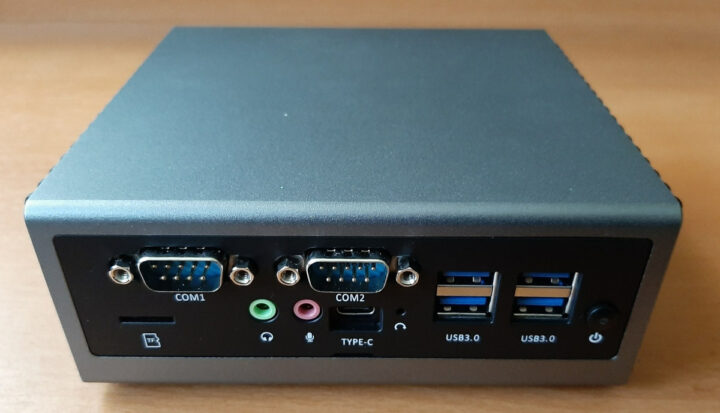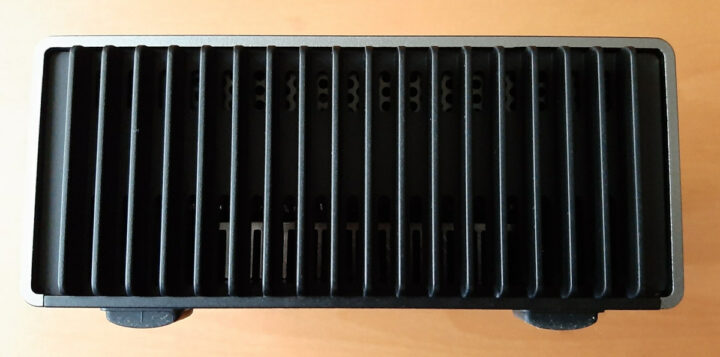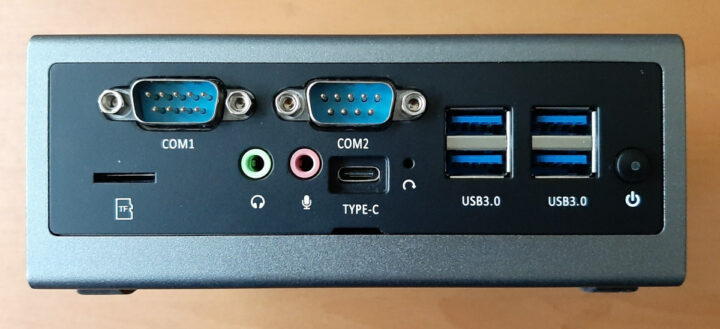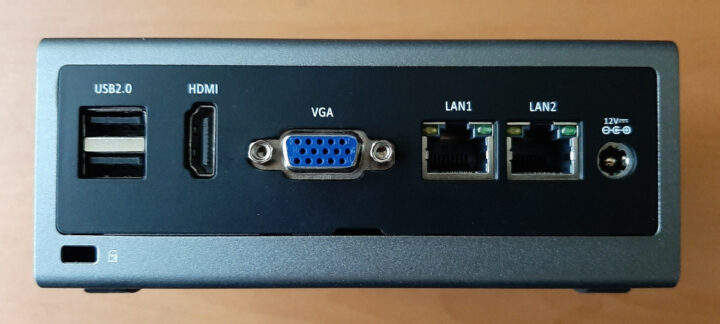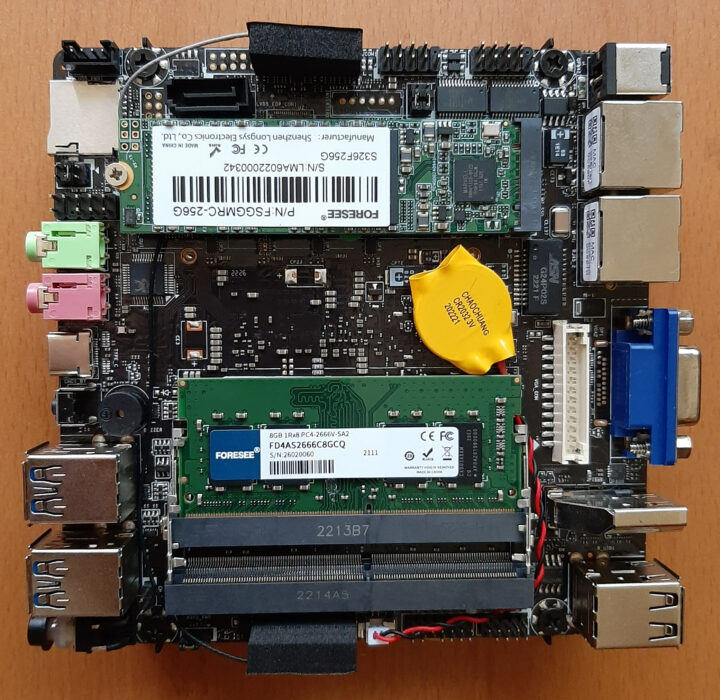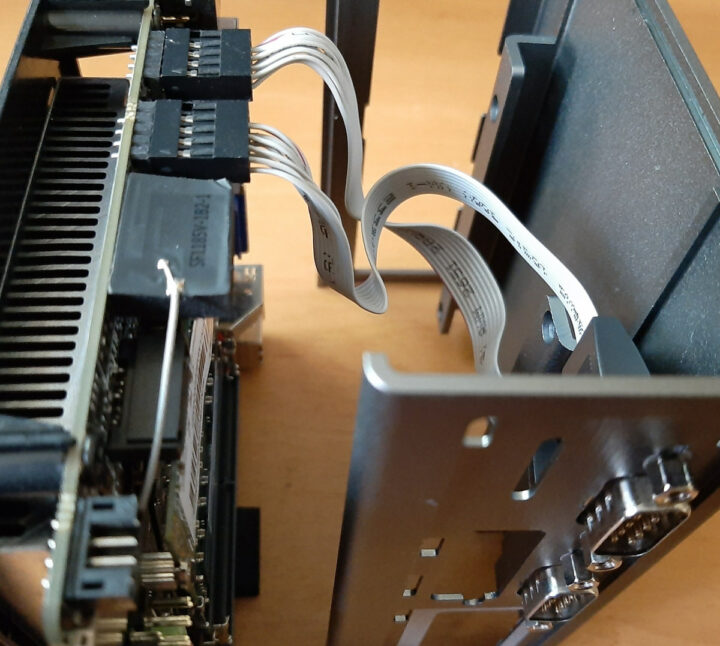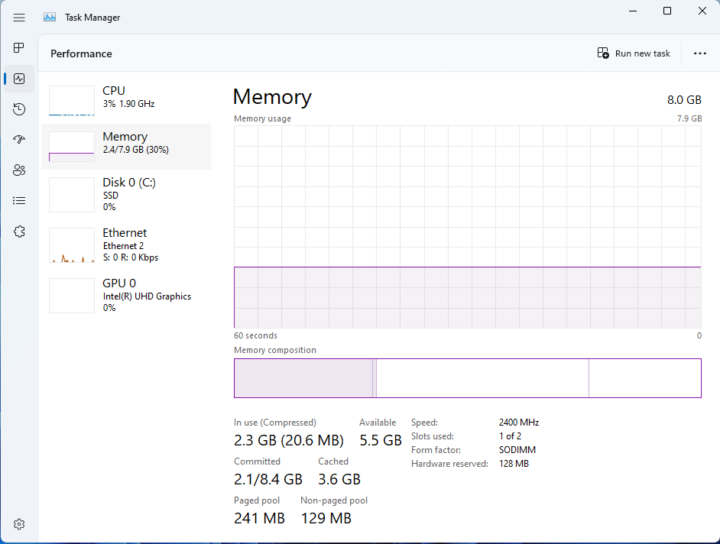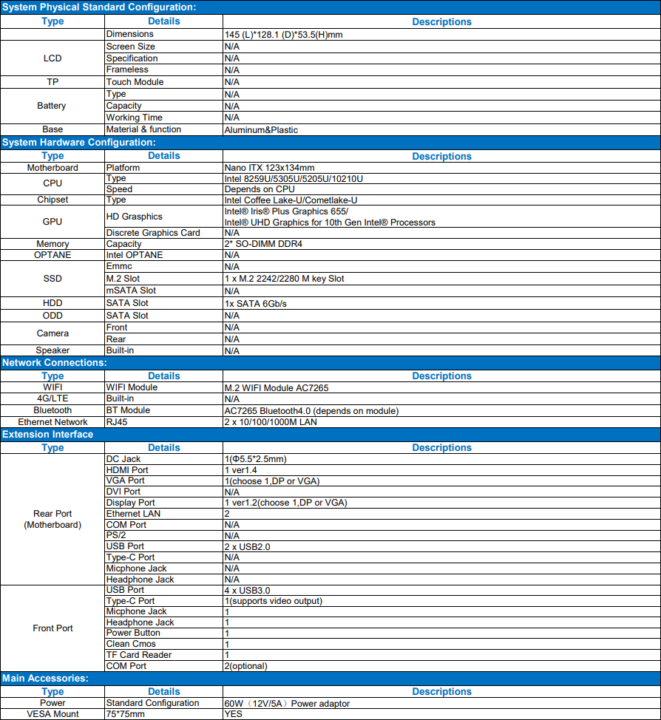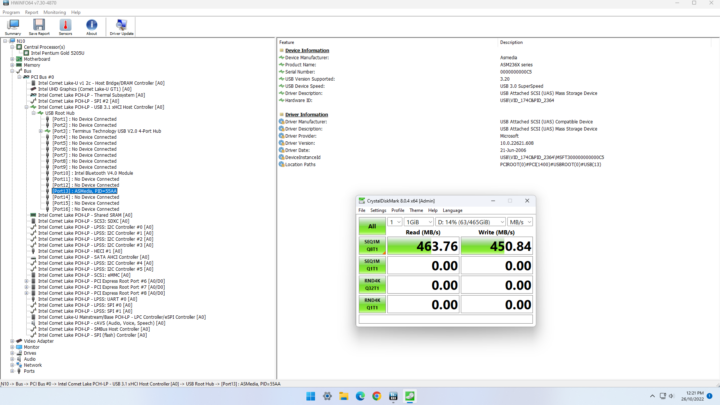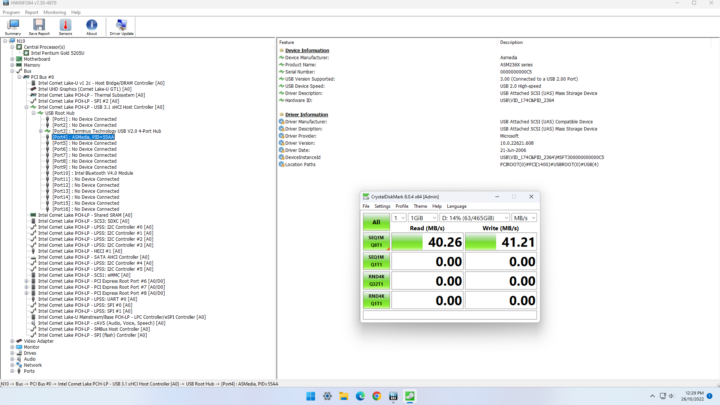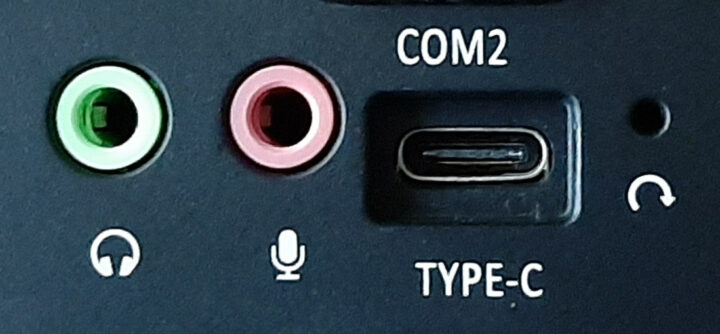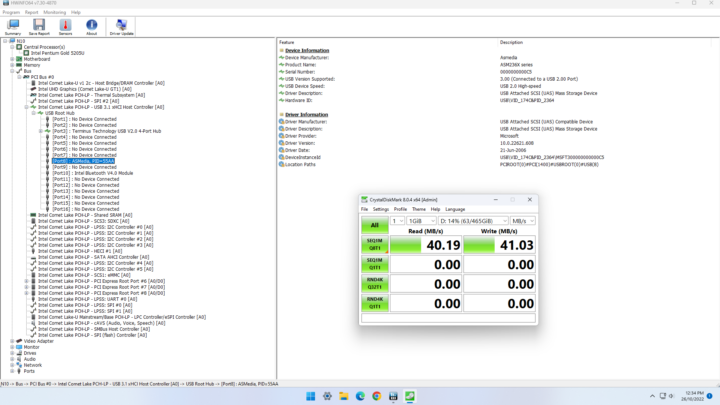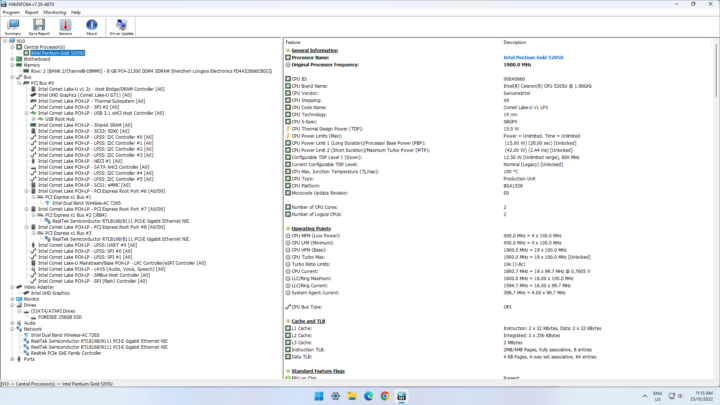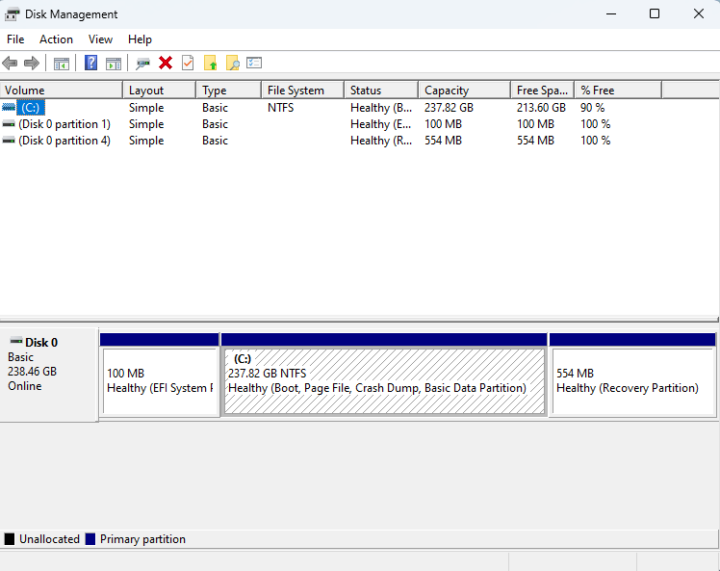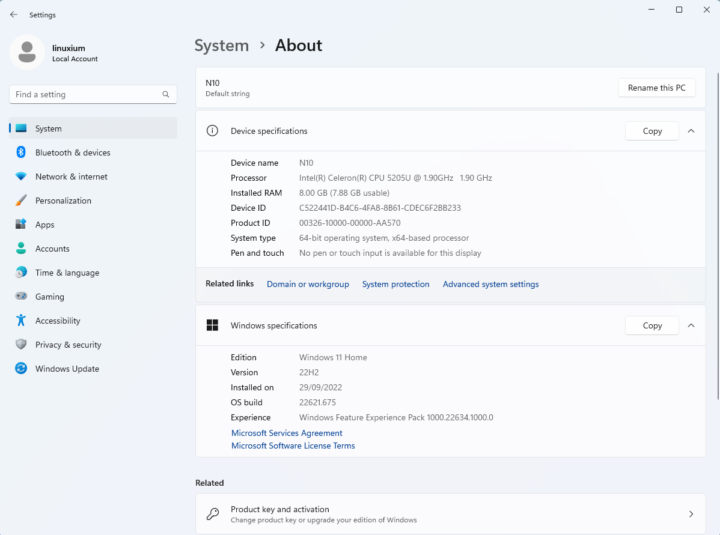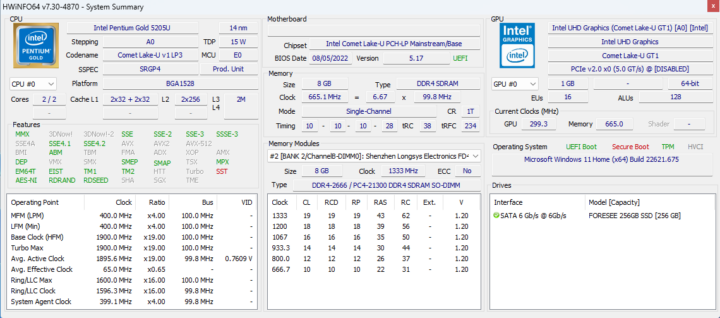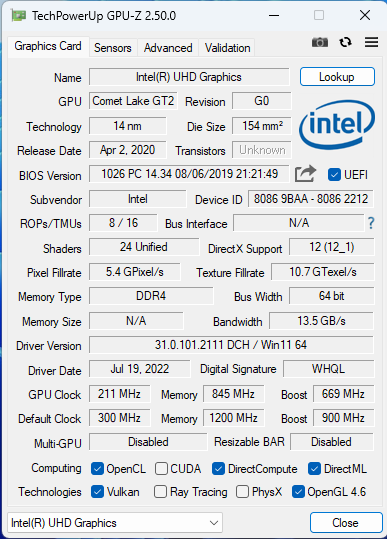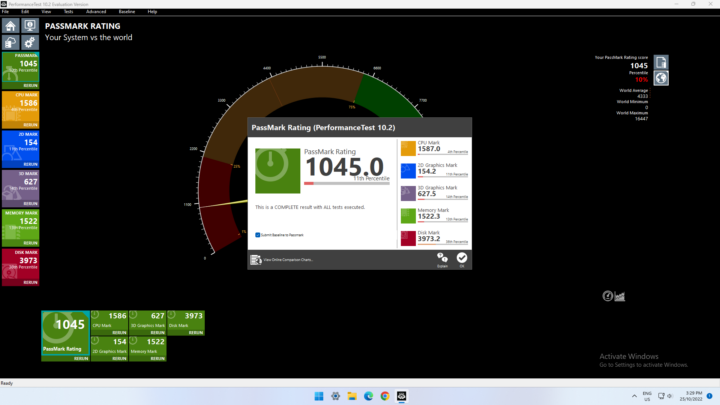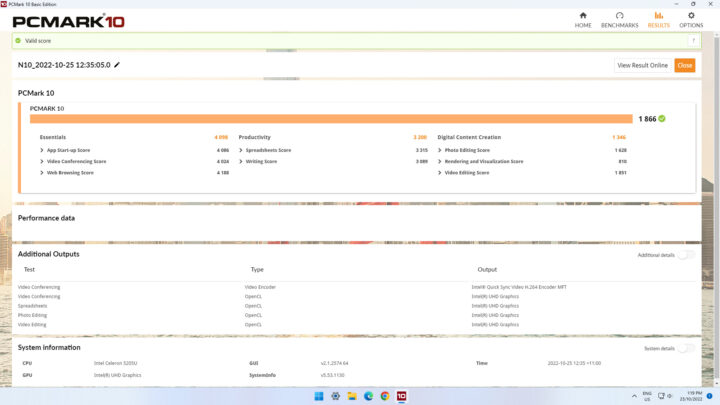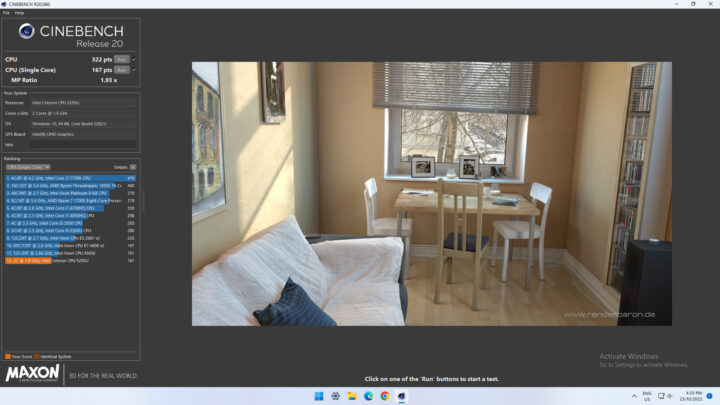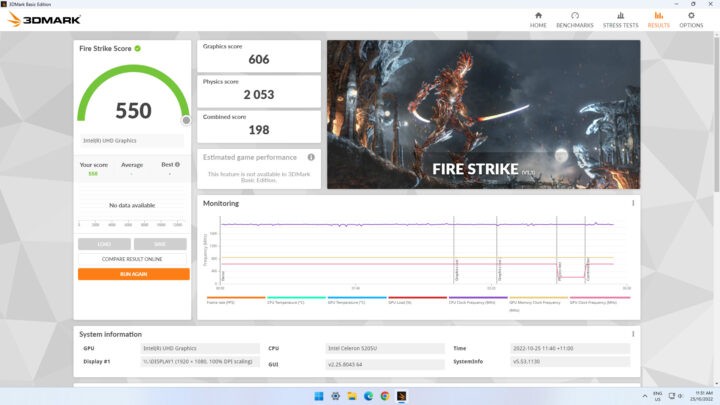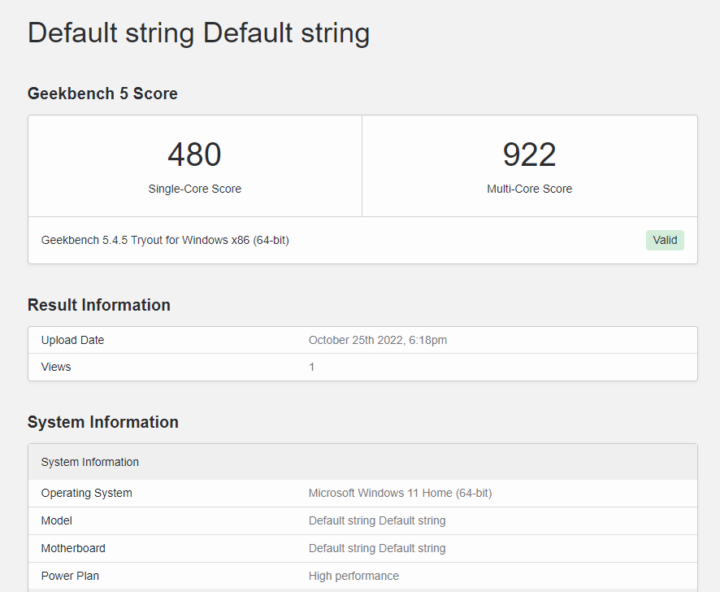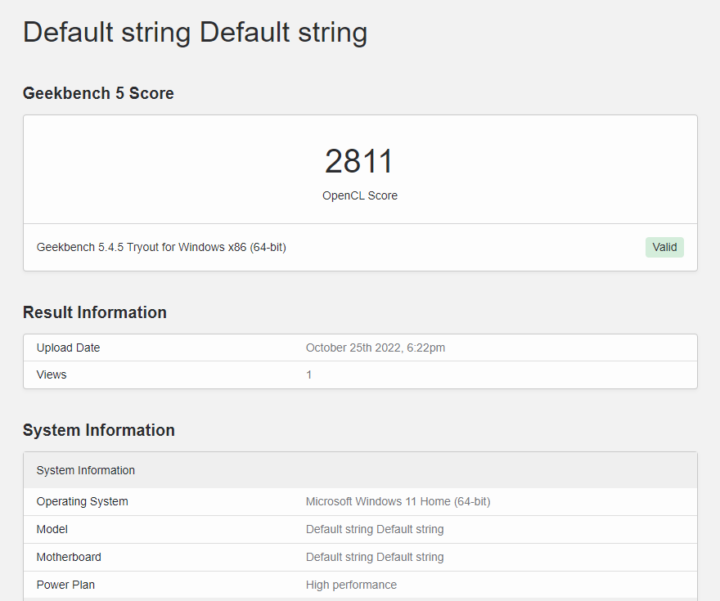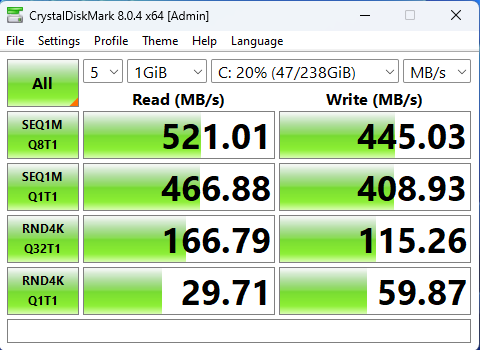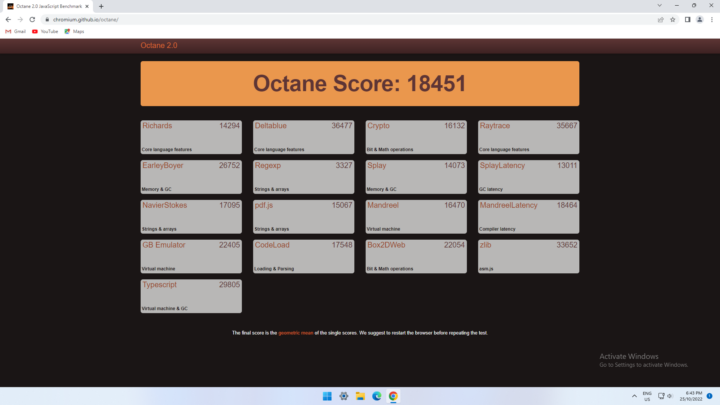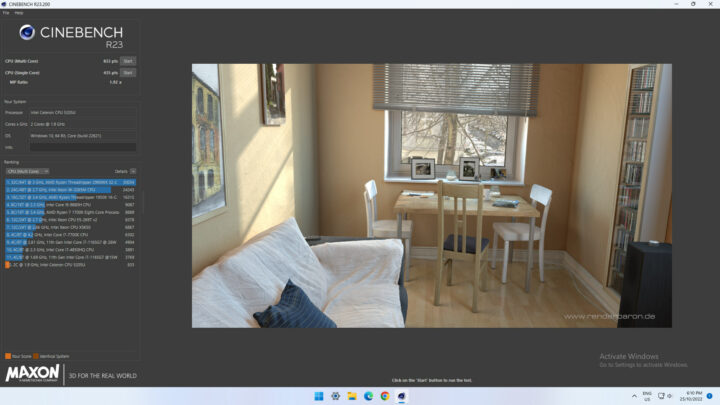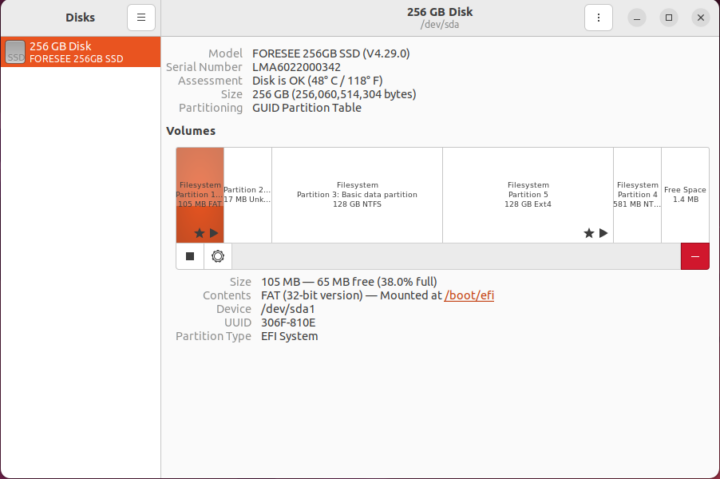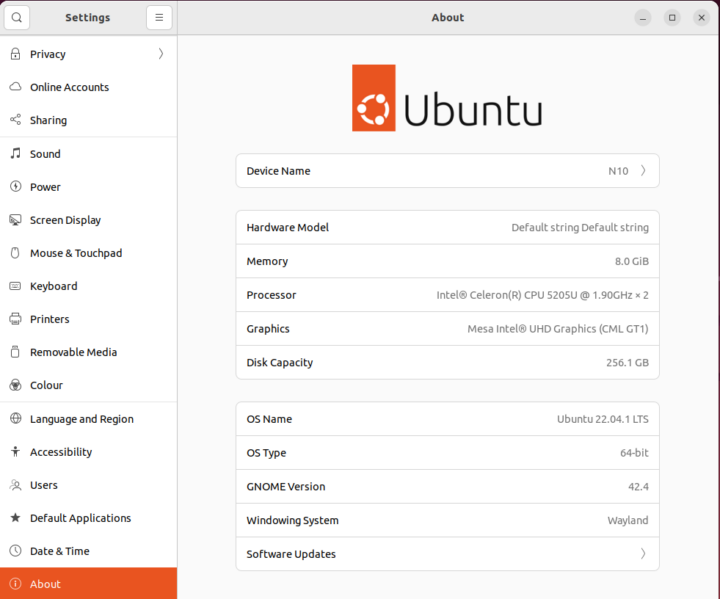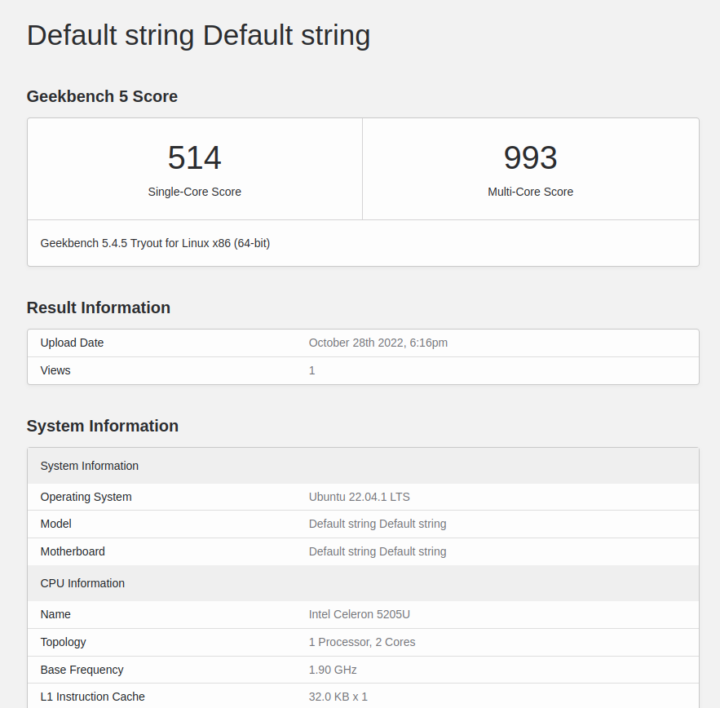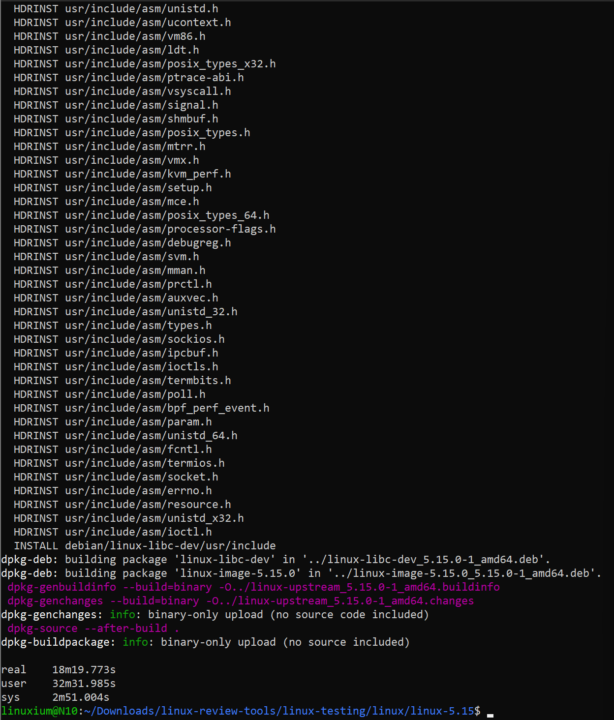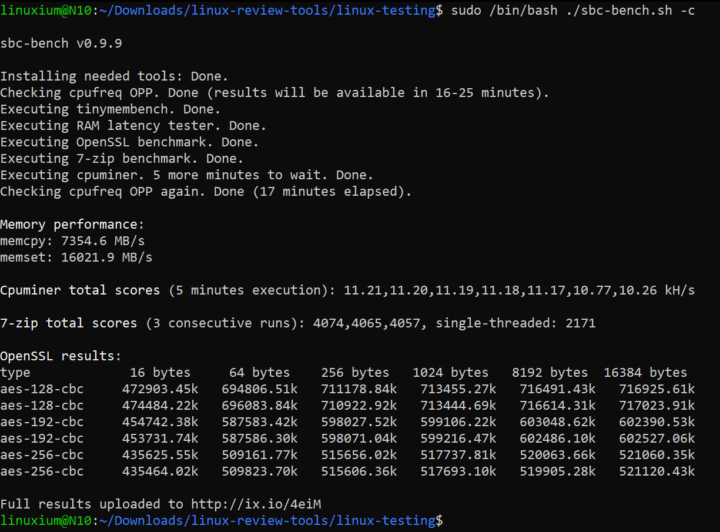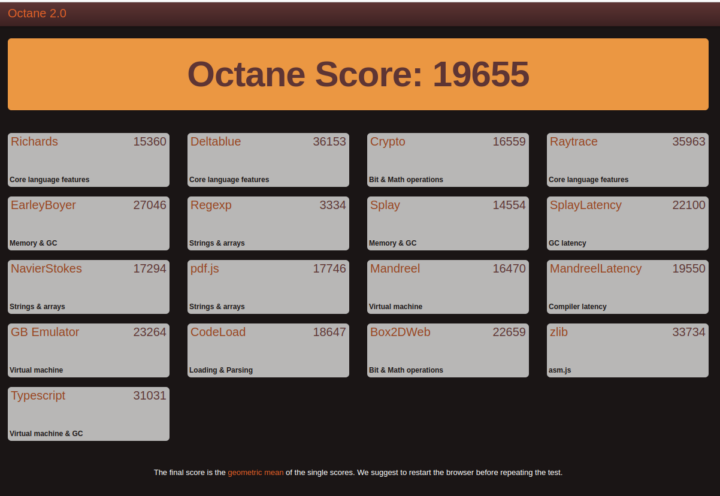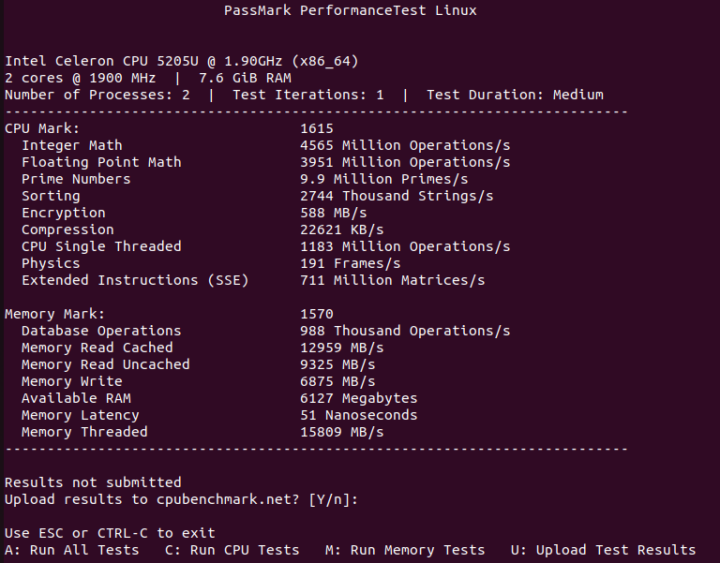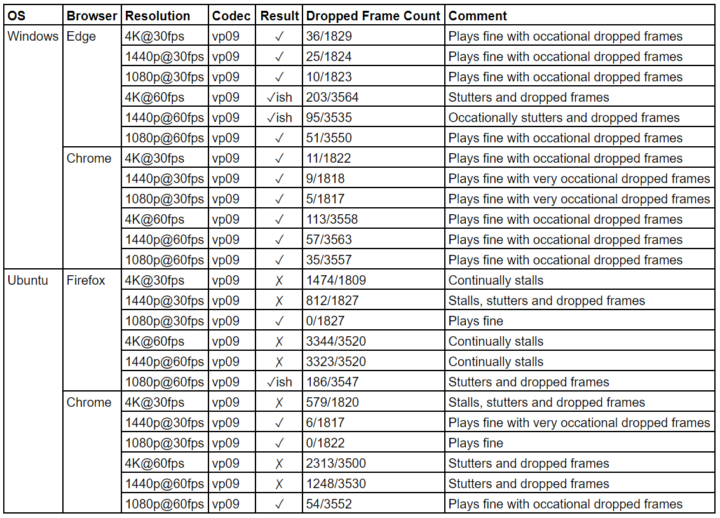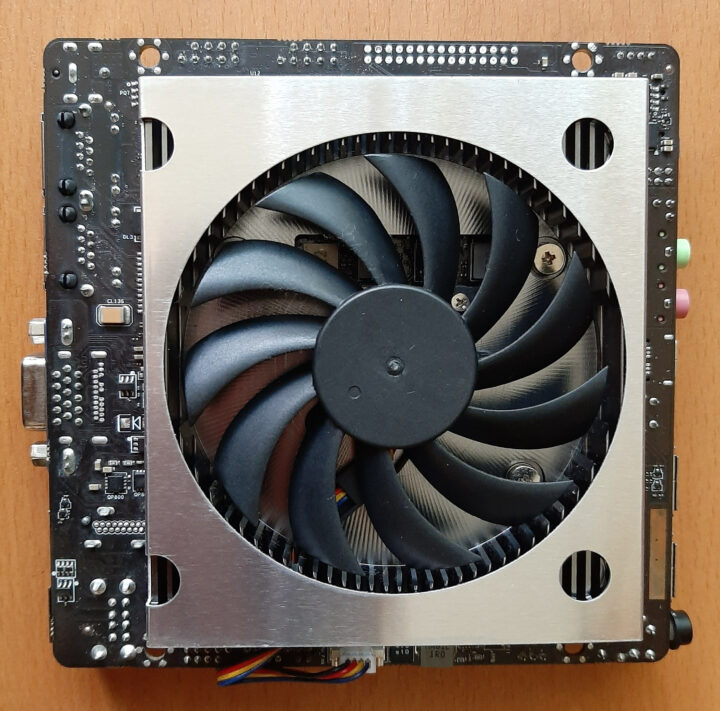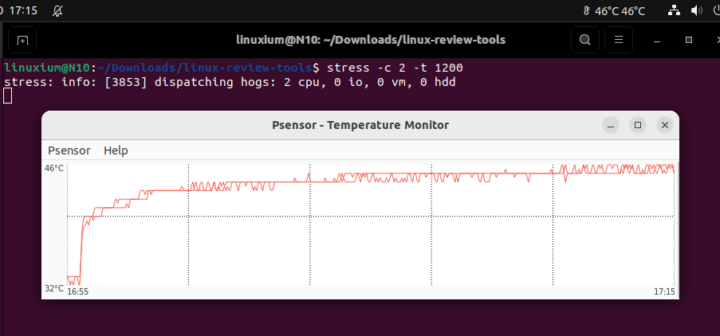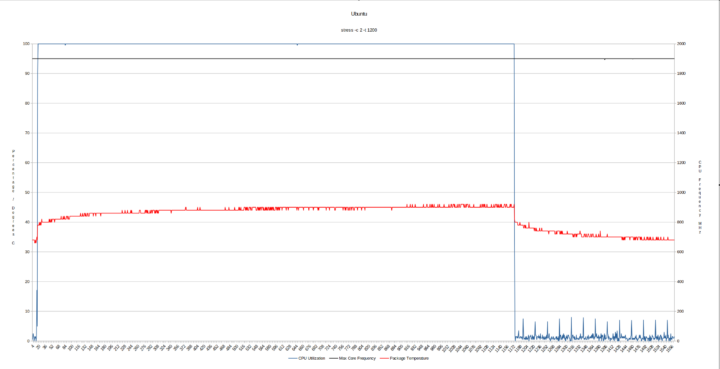Weibu is a B2B company offering total solutions and OEM/ODM services. Their target clients are computer manufacturers like Acer and Hisense as they don’t sell directly to end users. With their products both the specifications and accessories can be customized according to their customer’s requirements.
One of their product lines is mini PCs and they have sent a pre-production sample of their N10 design to showcase their capabilities. In this review, I will look at the various options available for the N10 and briefly look at performance running both Windows and Ubuntu.
Weibu N10 hardware overview
The key selling feature of this mini PC is the wide range of ports suitable for commercial/industrial usage together with various options for the processor.
The N10 is an actively cooled mini PC and the device is 145 x 128 x 54mm (5.71 x 5.04 x 2.13 inches) large with a metal top that extends over as the front and back to form the case which is then completed with two plastic sides and bottom:
CPUs that are supported include Intel’s Coffee Lake i5-8259U or i5-8279U, Comet Lake Celeron 5205U or 5305U, and Comet Lake i3-10110U or i5-10210U. The review sample included a Comet Lake Pentium 5205U which is a two-core 2-thread (no HyperThreading) 1.90 GHz Core processor (no Turbo) with Intel’s UHD Graphics.
The front panel has a power button, double dual USB 3.0 ports (i.e. four in total), a reset pin-hole for the UEFI (BIOS), dual COM ports (which are optional), a Type-C USB port, both a 3.5mm microphone and a 3.5mm headphone jack and a micro-SD card slot:
The rear panel includes the power jack, dual gigabit Ethernet ports, either a VGA port (as in the case of the review sample) or a DisplayPort 2.0, an HDMI 1.4 port, dual USB 2.0 ports, and a Kensington security slot:
Internally, there is an M.2 2230 WiFi 5 (or 802.11ac) Intel AC7265 card, and either an M.2 2242 or 2280 ‘M’ key SSD drive (the review sample included a 256GB Foresee M.2 2280 SATA SSD drive):
Also, there is the ability to add a 2.5” SATA drive to the top of the case which is then connected to the motherboard via a conventional SATA cable and a separate power cable. If the N10 is configured with the dual COM ports they are connected to the motherboard by ribbon cables:
There are also two SODIMM memory slots and the review sample included a single stick of Foresee 8 GB DDR4 2666 MHz memory running at 2400 MHz:
The specifications state:
and lists the front USB ports as 3.0 and the rear USB ports as 2.0 so I tested them together with the Type-C USB port using a Samsung 980 PRO PCle 4.0 NVMe M.2 SSD housed in a ‘USB to M.2 NVMe adapter’ (ORICO M2PAC3-G20 M.2 NVMe SSD Enclosure) which confirmed that all the ‘blue’ USB ports were USB 3.0 (USB 3.2 Gen 1×1 i.e. 5 Gbit/s):
and that the ‘black’ rear USB ports were USB 2.0:
However, the Type-C USB port currently has a design flaw in that the physical port is recessed into the front panel of the device and this can prevent cables from connecting due to the outer casing of a cable being larger than the recess:
By removing the front plastic insert I could access the Type-C USB port without hindrance to the cable but being a pre-production sample the port was only a USB 2.0 without ‘video output’:

Another drawback of being a pre-production sample was that the microSD card reader was not connected and so could not be tested.
Review Methodology
When reviewing mini PCs, I typically look at their performance under both Windows and Linux (Ubuntu). I now review using Windows 11 version 22H2 and Ubuntu 22.04.1 LTS. I test with a selection of commonly used Windows benchmarks and/or equivalents for Linux together with Thomas Kaiser’s ‘sbc-bench’ which is a small set of different CPU performance tests focusing on server performance when run on Ubuntu. On Ubuntu, I also compile the v5.15 Linux kernel using the default config as a test of performance using a real-world scenario.
Prior to benchmarking, I perform all necessary installations and updates to run the latest version of the OS. I also capture some basic details of the device for each OS.
Installation Issues
When booting Ubuntu 22.04.1 there are a couple of error messages being reported in the ‘dmesg’ although the significance of which has not been determined:
Windows Performance on Weibu N10
The Weibu N10 came installed with an unlicensed copy of Windows 11 version 22H2 as it is expected that customers needing Windows will purchase or have their own Windows keys. After applying updates Windows was build 22621.675. A quick look at the hardware information shows it is aligned to the specification:
A brief check showed working audio, Wi-Fi, Bluetooth, and Ethernet.
I then set the power mode to ‘High performance’ and ran some of my standard set of benchmarking tools to look at performance under Windows:
I also tested Cinebench R23:
Ubuntu 22.04 performance
After shrinking the Windows partition in half and creating a new partition I installed Ubuntu as dual boot using an Ubuntu 22.04.1 ISO. After installation and updates, a brief check showed working audio, Wi-Fi, Bluetooth, and Ethernet.
The key hardware information under Ubuntu 22.04.1 is as follows:
|
1 2 3 4 5 6 7 8 9 10 11 12 13 14 15 16 17 18 19 20 21 22 23 24 25 26 27 28 29 30 31 32 33 34 35 36 37 38 39 40 41 42 43 44 45 46 47 48 49 50 51 52 53 54 55 56 57 58 59 60 61 62 63 64 65 66 67 68 69 70 71 72 73 74 75 76 77 78 79 80 81 82 83 84 85 86 87 88 89 90 91 92 93 94 95 96 97 98 99 100 101 102 103 104 105 106 107 108 109 110 111 112 113 114 115 116 117 118 119 120 121 122 123 124 125 126 127 128 129 130 131 132 133 134 135 136 137 138 139 140 141 142 143 144 145 146 147 148 149 150 151 152 153 154 155 156 157 158 159 160 161 162 163 164 165 166 167 168 169 170 171 172 173 174 175 176 177 178 179 180 181 182 183 184 185 186 187 188 189 190 191 192 193 194 195 196 197 198 199 200 201 202 203 204 205 206 207 208 209 210 211 212 213 214 215 216 217 218 219 220 221 222 223 224 225 226 227 228 229 230 231 232 233 234 235 236 237 238 239 240 241 242 243 244 245 246 247 248 249 250 251 252 253 254 255 256 257 258 259 260 261 262 263 264 265 266 267 268 |
linuxium@N10:~$ lsb_release -a Distributor ID: Ubuntu Description: Ubuntu 22.04.1 LTS Release: 22.04 Codename: jammy linuxium@N10:~$ linuxium@N10:~$ uname -a Linux N10 5.15.0-52-generic #58-Ubuntu SMP Thu Oct 13 08:03:55 UTC 2022 x86_64 x86_64 x86_64 GNU/Linux linuxium@N10:~$ linuxium@N10:~$ inxi -Fzc0y-1 System: Kernel: 5.15.0-52-generic x86_64 bits: 64 Desktop: GNOME 42.4 Distro: Ubuntu 22.04.1 LTS (Jammy Jellyfish) Machine: Type: Desktop Mobo: N/A model: N/A serial: <filter> UEFI: American Megatrends v: 5.17 date: 08/05/2022 CPU: Info: dual core model: Intel Celeron 5205U bits: 64 type: MCP cache: L2: 512 KiB Speed (MHz): avg: 1852 min/max: 400/1900 cores: 1: 1805 2: 1900 Graphics: Device-1: Intel driver: i915 v: kernel Display: server: X.Org v: 1.22.1.1 driver: gpu: i915 note: X driver n/a resolution: 1920x1080~60Hz OpenGL: renderer: Mesa Intel UHD Graphics (CML GT1) v: 4.6 Mesa 22.0.5 Audio: Device-1: Intel Comet Lake PCH-LP cAVS driver: snd_hda_intel Sound Server-1: ALSA v: k5.15.0-52-generic running: yes Sound Server-2: PulseAudio v: 15.99.1 running: yes Sound Server-3: PipeWire v: 0.3.48 running: yes Network: Device-1: Intel Wireless 7265 driver: iwlwifi IF: wlp1s0 state: down mac: <filter> Device-2: Realtek RTL8111/8168/8411 PCI Express Gigabit Ethernet driver: r8169 IF: enp2s0 state: down mac: <filter> Device-3: Realtek RTL8111/8168/8411 PCI Express Gigabit Ethernet driver: r8169 IF: enp3s0 state: up speed: 1000 Mbps duplex: full mac: <filter> Bluetooth: Device-1: Intel Bluetooth wireless interface type: USB driver: btusb Report: hciconfig ID: hci0 state: up address: <filter> bt-v: 2.1 Drives: Local Storage: total: 238.47 GiB used: 10.93 GiB (4.6%) ID-1: /dev/sda vendor: ForeseSU04Ge model: 256GB SSD size: 238.47 GiB Partition: ID-1: / size: 116.48 GiB used: 10.89 GiB (9.4%) fs: ext4 dev: /dev/sda5 ID-2: /boot/efi size: 96 MiB used: 34 MiB (35.4%) fs: vfat dev: /dev/sda1 Swap: Alert: No swap data was found. Sensors: System Temperatures: cpu: 27.8 C pch: 30.0 C mobo: N/A Fan Speeds (RPM): N/A Info: Processes: 213 Uptime: 1m Memory: 7.64 GiB used: 1.12 GiB (14.7%) Shell: new-review-test inxi: 3.3.13 linuxium@N10:~$ linuxium@N10:~$ df -h Filesystem Size Used Avail Use% Mounted on tmpfs 783M 2.1M 781M 1% /run /dev/sda5 117G 11G 100G 10% / tmpfs 3.9G 0 3.9G 0% /dev/shm tmpfs 5.0M 4.0K 5.0M 1% /run/lock /dev/sda1 96M 35M 62M 36% /boot/efi tmpfs 783M 2.4M 780M 1% /run/user/1000 linuxium@N10:~$ linuxium@N10:~$ lsblk -a NAME MAJ:MIN RM SIZE RO TYPE MOUNTPOINTS loop0 7:0 0 62M 1 loop /snap/core20/1587 loop1 7:1 0 163.3M 1 loop /snap/firefox/1635 loop2 7:2 0 400.8M 1 loop /snap/gnome-3-38-2004/112 loop3 7:3 0 91.7M 1 loop /snap/gtk-common-themes/1535 loop4 7:4 0 4K 1 loop /snap/bare/5 loop5 7:5 0 45.9M 1 loop /snap/snap-store/582 loop6 7:6 0 47M 1 loop /snap/snapd/16292 loop7 7:7 0 284K 1 loop /snap/snapd-desktop-integration/14 loop8 7:8 0 0B 0 loop sda 8:0 0 238.5G 0 disk ├─sda1 8:1 0 100M 0 part /boot/efi ├─sda2 8:2 0 16M 0 part ├─sda3 8:3 0 118.9G 0 part ├─sda4 8:4 0 554M 0 part └─sda5 8:5 0 118.9G 0 part / linuxium@N10:~$ linuxium@N10:~$ sudo lshw -C cpu *-cpu description: CPU product: Intel(R) Celeron(R) CPU 5205U @ 1.90GHz vendor: Intel Corp. physical id: 48 bus info: cpu@0 version: 6.166.0 serial: <filter> slot: U3E1 size: 1673MHz capacity: 4005MHz width: 64 bits clock: 100MHz capabilities: lm fpu fpu_exception wp vme de pse tsc msr pae mce cx8 apic sep mtrr pge mca cmov pat pse36 clflush dts acpi mmx fxsr sse sse2 ss ht tm pbe syscall nx pdpe1gb rdtscp x86-64 constant_tsc art arch_perfmon pebs bts rep_good nopl xtopology nonstop_tsc cpuid aperfmperf pni pclmulqdq dtes64 monitor ds_cpl vmx est tm2 ssse3 sdbg cx16 xtpr pdcm pcid sse4_1 sse4_2 x2apic movbe popcnt tsc_deadline_timer aes xsave rdrand lahf_lm abm 3dnowprefetch cpuid_fault epb invpcid_single ssbd ibrs ibpb stibp ibrs_enhanced tpr_shadow vnmi flexpriority ept vpid ept_ad fsgsbase tsc_adjust smep erms invpcid mpx rdseed smap clflushopt intel_pt xsaveopt xsavec xgetbv1 xsaves dtherm arat pln pts hwp hwp_notify hwp_act_window hwp_epp md_clear flush_l1d arch_capabilities cpufreq configuration: cores=2 enabledcores=2 microcode=240 threads=2 linuxium@N10:~$ linuxium@N10:~$ sudo lshw -C memory *-firmware description: BIOS vendor: American Megatrends Inc. physical id: 0 version: 5.17 date: 08/05/2022 size: 64KiB capacity: 16MiB capabilities: pci upgrade shadowing cdboot bootselect socketedrom edd int13floppy1200 int13floppy720 int13floppy2880 int5printscreen int14serial int17printer acpi usb biosbootspecification uefi *-memory description: System Memory physical id: 3b slot: System board or motherboard size: 8GiB *-bank:0 description: Project-Id-Version: lshwReport-Msgid-Bugs-To: FULL NAME <EMAIL@ADDRESS>PO-Revision-Date: 2012-02-02 13:04+0000Last-Translator: Joel Addison <jaddi27@gmail.com>Language-Team: English (Australia) <en_AU@li.org>MIME-Version: 1.0Content-Type: text/plain; charset=UTF-8Content-Transfer-Encoding: 8bitX-Launchpad-Export-Date: 2022-07-21 13:07+0000X-Generator: Launchpad (build 025a39fd866a641b6ae33074cda0d02a2c712d38)Project-Id-Version: lshwReport-Msgid-Bugs-To: FULL NAME <EMAIL@ADDRESS>PO-Revision-Date: 2012-02-02 13:04+0000Last-Translator: Joel Addison <jaddi27@gmail.com>Language-Team: English (Australia) <en_AU@li.org>MIME-Version: 1.0Content-Type: text/plain; charset=UTF-8Content-Transfer-Encoding: 8bitX-Launchpad-Export-Date: 2022-07-21 13:07+0000X-Generator: Launchpad (build 025a39fd866a641b6ae33074cda0d02a2c712d38) [empty] physical id: 0 slot: ChannelA-DIMM0 *-bank:1 description: SODIMM DDR4 Synchronous 2667 MHz (0.4 ns) product: FD4AS2666C8GCQ vendor: 8AD6 physical id: 1 serial: <filter> slot: ChannelB-DIMM0 size: 8GiB width: 64 bits clock: 2667MHz (0.4ns) *-cache:0 description: L1 cache physical id: 45 slot: L1 Cache size: 128KiB capacity: 128KiB capabilities: synchronous internal write-back unified configuration: level=1 *-cache:1 description: L2 cache physical id: 46 slot: L2 Cache size: 512KiB capacity: 512KiB capabilities: synchronous internal write-back unified configuration: level=2 *-cache:2 description: L3 cache physical id: 47 slot: L3 Cache size: 2MiB capacity: 2MiB capabilities: synchronous internal write-back unified configuration: level=3 *-memory UNCLAIMED description: RAM memory product: Comet Lake PCH-LP Shared SRAM vendor: Intel Corporation physical id: 14.2 bus info: pci@0000:00:14.2 version: 00 width: 64 bits clock: 33MHz (30.3ns) capabilities: pm cap_list configuration: latency=0 resources: memory:b1416000-b1417fff memory:b1427000-b1427fff linuxium@N10:~$ linuxium@N10:~$ free -mh total used free shared buff/cache available Mem: 7.6Gi 663Mi 6.1Gi 209Mi 934Mi 6.5Gi Swap: 0B 0B 0B linuxium@N10:~$ linuxium@N10:~$ sudo lshw -C network *-network description: Wireless interface product: Wireless 7265 vendor: Intel Corporation physical id: 0 bus info: pci@0000:01:00.0 logical name: wlp1s0 version: 59 serial: <filter> width: 64 bits clock: 33MHz capabilities: pm msi pciexpress bus_master cap_list ethernet physical wireless configuration: broadcast=yes driver=iwlwifi driverversion=5.15.0-52-generic firmware=29.4063824552.0 7265D-29.ucode latency=0 link=no multicast=yes wireless=IEEE 802.11 resources: irq:132 memory:b1300000-b1301fff *-network description: Ethernet interface product: RTL8111/8168/8411 PCI Express Gigabit Ethernet Controller vendor: Realtek Semiconductor Co., Ltd. physical id: 0 bus info: pci@0000:02:00.0 logical name: enp2s0 version: 15 serial: <filter> capacity: 1Gbit/s width: 64 bits clock: 33MHz capabilities: pm msi pciexpress msix bus_master cap_list ethernet physical tp mii 10bt 10bt-fd 100bt 100bt-fd 1000bt-fd autonegotiation configuration: autonegotiation=on broadcast=yes driver=r8169 driverversion=5.15.0-52-generic firmware=rtl8168h-2_0.0.2 02/26/15 latency=0 link=no multicast=yes port=twisted pair resources: irq:18 ioport:4000(size=256) memory:b1204000-b1204fff memory:b1200000-b1203fff *-network description: Ethernet interface product: RTL8111/8168/8411 PCI Express Gigabit Ethernet Controller vendor: Realtek Semiconductor Co., Ltd. physical id: 0 bus info: pci@0000:03:00.0 logical name: enp3s0 version: 15 serial: <filter> size: 1Gbit/s capacity: 1Gbit/s width: 64 bits clock: 33MHz capabilities: pm msi pciexpress msix bus_master cap_list ethernet physical tp mii 10bt 10bt-fd 100bt 100bt-fd 1000bt-fd autonegotiation configuration: autonegotiation=on broadcast=yes driver=r8169 driverversion=5.15.0-52-generic duplex=full firmware=rtl8168h-2_0.0.2 02/26/15 ip=<filter> latency=0 link=yes multicast=yes port=twisted pair speed=1Gbit/s resources: irq:19 ioport:3000(size=256) memory:b1104000-b1104fff memory:b1100000-b1103fff linuxium@N10:~$ linuxium@N10:~$ sudo lshw -C display *-display description: VGA compatible controller product: Intel Corporation vendor: Intel Corporation physical id: 2 bus info: pci@0000:00:02.0 logical name: /dev/fb0 version: 04 width: 64 bits clock: 33MHz capabilities: pciexpress msi pm vga_controller bus_master cap_list rom fb configuration: depth=32 driver=i915 latency=0 resolution=2560,1080 resources: irq:131 memory:b0000000-b0ffffff memory:a0000000-afffffff ioport:5000(size=64) memory:c0000-dffff linuxium@N10:~$ linuxium@N10:~$ dmesg | grep "MMC card" linuxium@N10:~$ linuxium@N10:~$ dmesg | egrep -i sdhci\|mmc [ 0.175149] PCI: MMCONFIG for domain 0000 [bus 00-ff] at [mem 0xe0000000-0xefffffff] (base 0xe0000000) [ 0.175156] PCI: MMCONFIG at [mem 0xe0000000-0xefffffff] reserved in E820 [ 1.358877] sdhci: Secure Digital Host Controller Interface driver [ 1.358878] sdhci: Copyright(c) Pierre Ossman [ 1.365633] sdhci-pci 0000:00:14.5: SDHCI controller found [8086:02f5] (rev 0) [ 1.375116] mmc0: SDHCI controller on PCI [0000:00:14.5] using ADMA 64-bit [ 1.375375] sdhci-pci 0000:00:1a.0: SDHCI controller found [8086:02c4] (rev 0) [ 1.376246] mmc1: CQHCI version 5.10 [ 1.385933] mmc1: SDHCI controller on PCI [0000:00:1a.0] using ADMA 64-bit linuxium@N10:~$ linuxium@N10:~$ lsusb Bus 002 Device 001: ID 1d6b:0003 Linux Foundation 3.0 root hub Bus 001 Device 006: ID 045e:07f8 Microsoft Corp. Wired Keyboard 600 (model 1576) Bus 001 Device 005: ID 10d5:55a4 Uni Class Technology Co., Ltd 4 Port KVMSwicther Bus 001 Device 004: ID 093a:2510 Pixart Imaging, Inc. Optical Mouse Bus 001 Device 002: ID 1a40:0101 Terminus Technology Inc. Hub Bus 001 Device 003: ID 8087:0a2a Intel Corp. Bluetooth wireless interface Bus 001 Device 001: ID 1d6b:0002 Linux Foundation 2.0 root hub linuxium@N10:~$ linuxium@N10:~$ lspci -nn 00:00.0 Host bridge [0600]: Intel Corporation Device [8086:9b71] 00:02.0 VGA compatible controller [0300]: Intel Corporation Device [8086:9baa] (rev 04) 00:12.0 Signal processing controller [1180]: Intel Corporation Comet Lake Thermal Subsytem [8086:02f9] 00:12.6 Serial bus controller [0c80]: Intel Corporation Device [8086:02fb] 00:14.0 USB controller [0c03]: Intel Corporation Comet Lake PCH-LP USB 3.1 xHCI Host Controller [8086:02ed] 00:14.2 RAM memory [0500]: Intel Corporation Comet Lake PCH-LP Shared SRAM [8086:02ef] 00:14.5 SD Host controller [0805]: Intel Corporation Comet Lake PCH-LP SCS3 [8086:02f5] 00:15.0 Serial bus controller [0c80]: Intel Corporation Serial IO I2C Host Controller [8086:02e8] 00:15.1 Serial bus controller [0c80]: Intel Corporation Comet Lake Serial IO I2C Host Controller [8086:02e9] 00:15.2 Serial bus controller [0c80]: Intel Corporation Comet Lake PCH-LP LPSS: I2C Controller #2 [8086:02ea] 00:15.3 Serial bus controller [0c80]: Intel Corporation Device [8086:02eb] 00:16.0 Communication controller [0780]: Intel Corporation Comet Lake Management Engine Interface [8086:02e0] 00:17.0 SATA controller [0106]: Intel Corporation Comet Lake SATA AHCI Controller [8086:02d3] 00:19.0 Serial bus controller [0c80]: Intel Corporation Comet Lake Serial IO I2C Host Controller [8086:02c5] 00:19.1 Serial bus controller [0c80]: Intel Corporation Device [8086:02c6] 00:1a.0 SD Host controller [0805]: Intel Corporation Device [8086:02c4] 00:1c.0 PCI bridge [0604]: Intel Corporation Device [8086:02bd] (rev f0) 00:1c.6 PCI bridge [0604]: Intel Corporation Device [8086:02be] (rev f0) 00:1c.7 PCI bridge [0604]: Intel Corporation Device [8086:02bf] (rev f0) 00:1e.0 Communication controller [0780]: Intel Corporation Device [8086:02a8] 00:1e.2 Serial bus controller [0c80]: Intel Corporation Device [8086:02aa] 00:1e.3 Serial bus controller [0c80]: Intel Corporation Device [8086:02ab] 00:1f.0 ISA bridge [0601]: Intel Corporation Device [8086:0285] 00:1f.3 Audio device [0403]: Intel Corporation Comet Lake PCH-LP cAVS [8086:02c8] 00:1f.4 SMBus [0c05]: Intel Corporation Comet Lake PCH-LP SMBus Host Controller [8086:02a3] 00:1f.5 Serial bus controller [0c80]: Intel Corporation Comet Lake SPI (flash) Controller [8086:02a4] 01:00.0 Network controller [0280]: Intel Corporation Wireless 7265 [8086:095a] (rev 59) 02:00.0 Ethernet controller [0200]: Realtek Semiconductor Co., Ltd. RTL8111/8168/8411 PCI Express Gigabit Ethernet Controller [10ec:8168] (rev 15) 03:00.0 Ethernet controller [0200]: Realtek Semiconductor Co., Ltd. RTL8111/8168/8411 PCI Express Gigabit Ethernet Controller [10ec:8168] (rev 15) linuxium@N10:~$ |
I then set the CPU Scaling Governor to ‘performance’ and ran some of my Linux benchmarks:
I also ran PassMark PerformanceTest Linux:
which can be directly compared to the results from when it was run on Windows:
Video playback in browsers with YouTube
As the review sample did not have a particularly powerful processor/graphics combination I concentrated on evaluating how well the browsers functioned. To do this I played some videos in Edge and Chrome on Windows and in Firefox and Chrome on Ubuntu:
Basically, browsers on Windows performed better than on Ubuntu when playing higher resolution videos with Chrome being the best browser on each OS:
Thermals
The Weibu N10 mini PC uses active cooling and underneath the motherboard above the bottom of the device is a large fan:
Running a stress test on Ubuntu saw the CPU temperature climb to an average of 45°C occasionally peaking at 46°C:
During the stress test, the maximum temperature I recorded on the top of the device was around 30.5°C in an ambient room temperature of 21.6°C and the fan was virtually silent, registering only 30.5 dBA on my sound meter next to the device during the test. If the CPU frequency is monitored when running the stress test it can be seen that it ran at a constant 1900 MHz both before, during and after the test:
Networking
Network connectivity throughput was measured on Ubuntu using ‘iperf3’:
which showed both good and consistent Ethernet performance on both ports.
Power consumption
The power consumption was measured as follows:
- Powered off (shutdown) – 1.3 Watts
- UEFI (BIOS) – 10.2 Watts
- GRUB boot menu – 9.9 Watts
- Idle – 7.5 Watts (Windows) and 6.3 Watts (Ubuntu)
- CPU stressed* – 13.9 Watts (Windows ‘Cinebench’) and 11.9 Watts (Ubuntu ‘stress’)
*The power figures fluctuate due to the fan so the value is the average of the median high and median low power readings.
Final Observations
The N10 has a good range of ports suitable for many commercial/industrial usage scenarios. Whilst performance from the review sample was somewhat impacted by the choice of CPU and amount of memory, it shows the capability of the device when low power usage is a critical factor. The ability to both customize the port selection and CPU choice offers plenty of flexibility to prospective customers.
| Highlights | Limitations |
|---|---|
| Multiple port options | Current Type-C USB port design limits cable compatibility |
| Multiple storage options | Somewhat older CPU options |
I’d like to thank Weibu for providing the N10 mini PC for review. Further details can be found on their website.

Ian is interested in mini PCs and helps with reviews of mini PCs running Windows, Ubuntu and other Linux operating systems. You can follow him on Facebook or Twitter.
Support CNX Software! Donate via cryptocurrencies, become a Patron on Patreon, or purchase goods on Amazon or Aliexpress


